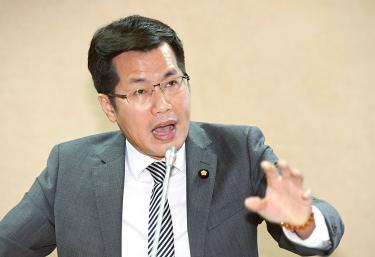Democratic Progressive Party (DPP) legislators have proposed amendments to the Act Governing Relations Between the People of the Taiwan Area and the Mainland Area (臺灣地區與大陸地區人民關係條例) to require former presidents and vice presidents to obtain official approval from the sitting president prior to visiting China.
The amendments were proposed by DPP legislators Lo Chih-cheng (羅致政) and Chen Ting-fei (陳亭妃).
According to the act, all politically appointed former officials with access to national security information are required to obtain approval from the Ministry of the Interior before visiting China in the first three years after their retirement, Lo said.
However, former presidents and vice presidents, who have superiority access to sensitive information, are exempt from the requirements, and “this gap in Taiwan’s national security makes the amendment necessary,” he said.
Chen said the president is the ultimate authority on national defense, diplomacy and cross-strait relations, and there is a need to guard state secrets that flow through the Presidential Office.
The proposed amendments would require former presidents and vice presidents to obtain permission from the sitting president before visiting China and would oblige them to disclose their itinerary and purpose of travel, Chen said.
The proposed measures would protect national security and encourage mutual trust and respect between former and current presidents, Chen added.
Chinese Nationalist Party (KMT) Legislator Alicia Wang (王育敏) opposed the proposed amendments, saying that DPP lawmakers were clearly and improperly targeting President Ma Ying-jeou (馬英九), who is to leave office on May 20.
The proposal lacked “rationality and necessity,” Wang added.
Wang said the proposal undermined the spirit of president-elect Tsai Ing-wen’s (蔡英文) calls for bipartisanship and would create “futile complications” to political cooperation between parties.
Former presidents should be encouraged to contribute to cross-strait relations, and it is “hardly desirable” to limit the ability of “former heads of state” to travel, Wang said.
The incoming administration is unlikely to inherit the KMT government’s good relations with China, and the DPP should consider preserving channels of communication with Beijing, she added.
The DPP should “have more vision” and refrain from taking actions that “solely concern Ma as an individual,” Wang said.
Source: Taipei Times - 2016/03/28





















